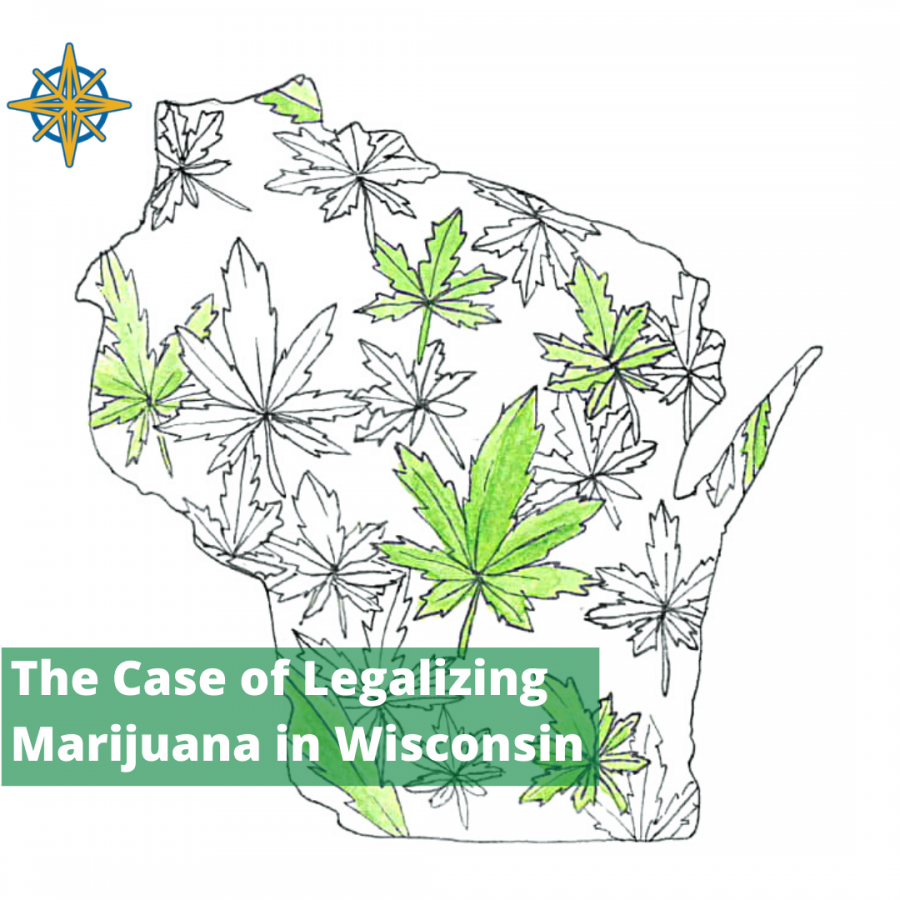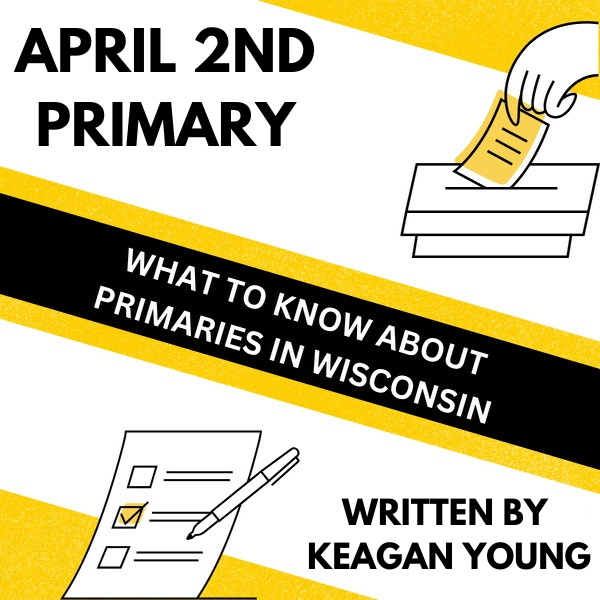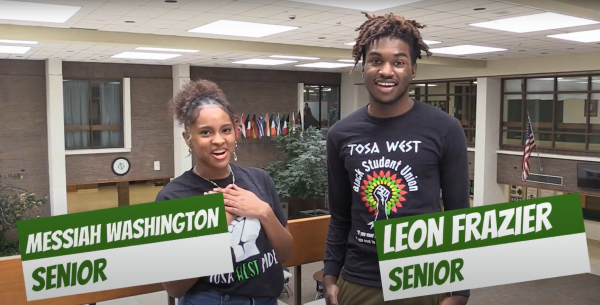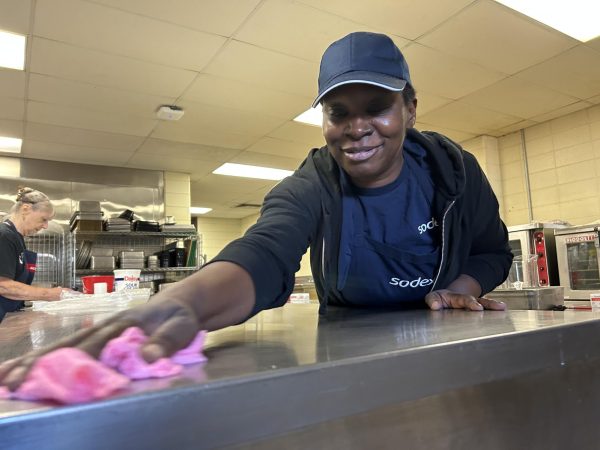The Case of Legalizing Marijuana in Wisconsin
May 2, 2021
“Definitely yes, we should legalize marijuana,” said Wauwatosa West senior and AP Government student Olivia Pelzek when asked if the State of Wisconsin should legalize recreational marijuana.
Pelzek is not alone.
59% of respondents to a January 2019 Marquette University Law School poll surveying people in Wisconsin said that the use of marijuana should be made legal.
Pelzek sees current marijuana laws as inherently unfair and disproportionately affecting minorities.
“The criminalization of marijuana disproportionately affects Black people, specifically Black men. They’re a lot more likely to be arrested for marijuana use, even though Black people and white people use marijuana relatively the same rate. It just contributes to the systemic racism in the U.S.’s oppression of Black people,” Pelzek said.
In 2021, 36 states have legalized marijuana for medical purposes. 15 states have legalized recreational marijuana for adults. In Wisconsin, neither recreational or medical marijuana is legal. Under the federal Controlled Substances Act, marijuana is illegal and considered a Schedule I drug, similar to heroin.
The Tenth Amendment allows states to overrule the federal government, when powers are not delegated to the United States by the Constitution as in the legalization of marijuana. Governor Evers has proposed a new bill for the two year budget, 2021-2023, which is predicted to generate more than $165 million in revenue, by taxing and regulating marijuana similar to how the State handles alcohol sales. Evers wants to create a Community Reinvestment Fund in order to generate aid for rural school districts and fund equity initiatives in urban areas.
Wisconsin Representative Robyn Vining has issued a statement in support of this proposal indicating “medical marijuana has shown it can have benefits for patients with epilepsy and other health concerns.” While she indicates there is more to discuss in terms of expungement of past low-level convictions and employment drug tests, Rep. Vining believes this needs to be looked at through the “lens of racial equity and reducing racial disparities” when considering legalization of marijuana.
In April 2020, the ACLU issued a new report that seems to echo Rep. Vining’s sentiments, as the report indicates that Black people are 4.2 times more likely to be arrested for marijuana possession, despite comparable usage rates. Wisconsin ranked 14th in the nation for racial disparities.
Senator Dale Kooyenga indicates that he believes “that with adequate education, labeling, and forms of regulation, legalization of medical marijuana in Wisconsin is a conversation worth having” but has concerns about legalization of marijuana for recreational purposes. Sen. Kooyenga indicates that “the impact of full legalization needs to be studied in the states that have gone that route”.
Wauwatosa West Student Resource Officer Farris Griffin stated, “I don’t have an opinion one way or another on the legalization of medical and/or recreational marijuana, as long as it is used responsibly. There will be restrictions and limitations that will be in place if marijuana is legalized. I would like for people to educate themselves on those laws and restrictions, and be aware of consequences of not following those guidelines.”
According to the Wauwatosa Youth Risk Behavior Survey 2019 Report, 33% of Wauwatosa High School students report using marijuana once in their lives. Regarding being caught with marijuana on school grounds, Griffin stated, “There have been some instances of students smoking marijuana and/or vaping THC oils on campus. Those individuals have received a $124.00 citation for possession of THC and school consequences. If you are caught with marijuana on school grounds, there will be a municipal citation issued. There will also be school consequences. There is no reason to have marijuana or any other illegal substance or weapon on school grounds.”
Data has been coming in since the legalization of marijuana in Illinois on Jan. 1, 2020. According to The Chicago Tribune, within the first year of legalizing marijuana, it is “bringing in more than $100 million in taxes and fees for a cash-strapped state government.”
“When Illinois legalized marijuana a lot of the money made off of those profits went to benefiting Chicago’s public schools system. So I think if we legalize marijuana in Wisconsin, then the money used from that could go towards benefiting our schools and basically any other things that the government would need money for like infrastructure, and other beneficial things,” said Tosa West senior Karly Kortbein.
Yet, according to an analysis by the JAMA Internal Medicine, in Colorado, traffic fatalities have increased by 75 per year, since 2014, when marijuana was legalized. Alternatively, the state of Washington saw no increase but the co-author of the study, Julian Santaella-Tenorio, said that could be due to Colorado’s larger cannabis industry and tourism related to it.
In terms of the pros and cons of health benefits, the data is also mixed. According to “Pros and Cons of Medical Marijuana” reports, marijuana has a cornucopia of medical uses, such as improving nausea in cancer patients and providing a safer treatment for narcotic addiction. Conversely, smoking marijuana can damage lung tissue and usage can long term memory and lead to addiction. According to the CDC, “1 in 10 marijuana users will become addicted. For people who begin using younger than 18, that number rises to 1 in 6.”
However, Kortbein countered, “If the government can regulate the distribution of marijuana then they can make sure it isn’t laced with things that aren’t dangerous. Because right now if you’re buying marijuana from a non reputable person or source, then that marijuana could be laced with things that could possibly kill you, whereas if the government was regulating the distribution and production then it’ll be safer for people to use.”
While the debate is playing out, there is a bipartisan bill to reduce existing fines in Wisconsin for 10 grams of cannabis or less from $1,000 to $100 and eliminate the six months of imprisonment that can come with that charge. In the meantime, local governments, including Milwaukee, are proposing their own initiative to reduce the fine for possession to $1 for up to 25 grams, which is just under an ounce. Currently in Milwaukee, the fine for marijuana possession under an ounce is $50 but no more than $500. The Milwaukee County Board approved this initiative on March 25. However, in Wauwatosa, the current fine for a first-time marijuana possession (small amount) is $124.00. The fine amount may be more due to the circumstances of an individual situation.
Using marijuana heavily and at younger ages can cause negative health effects, at the time, and in the future, for adolescents. A study done by the University of Washington noted that, “teens interviewed after voter approval in 2012 of nonmedical marijuana were several times more likely to report they’d used marijuana in the past year.” Essentially, this means that the legalization of marijuana may be increasing teen substance use. However, according to the UW News, one study done, the Seattle Social Development Project, did not find an overall association between marijuana legalization and teens’ perceived harm from the drug. Researchers suggest that it could be that changing societal attitudes drive changes in marijuana laws. This is seen through how communities and schools have pushed more education and information on topics like drug prevention throughout schools and communities. The societal view of drugs changed since the 60’s and 70’s, when usage was higher, but was viewed as harmless.
As the debate continues, most Wisconsinites support the legalization of marijuana. According to a Marquette University Law School pool, 59% of voters say marijuana use should be legal, and 83% support legalizing it for medical use. An article by Pew Research Center showed that 76% of millennials support marijuana legalization. As time goes on, more data will present itself but, in the meantime, there is a growing consensus to decriminalize marijuana use.
Tosa West senior, Grace Dykstra said, “I think we should legalize marijuana, especially because of the way it disproportionately affects Black people in our population. Especially in Milwaukee, which is one of the most segregated cities, and specifically one zip code 53206, which is really bad, because there is a high percentage of Black men who’ll go to jail for nonviolent marijuana possession charges. Also, if we can put the money back into schools like in Milwaukee, that don’t get enough funding, then we can start to build the city back up.”
Officer Griffin wants everyone to remember, “Even if it is legalized there will still be restrictions on possession. Some of those restrictions may include: residents over the age of 21 may possess 30 grams of cannabis-flower, 500mg of THC infused edibles. No students in the Wauwatosa West community would be of age to be in possession of it, but they may be presented with more access to it.”
















